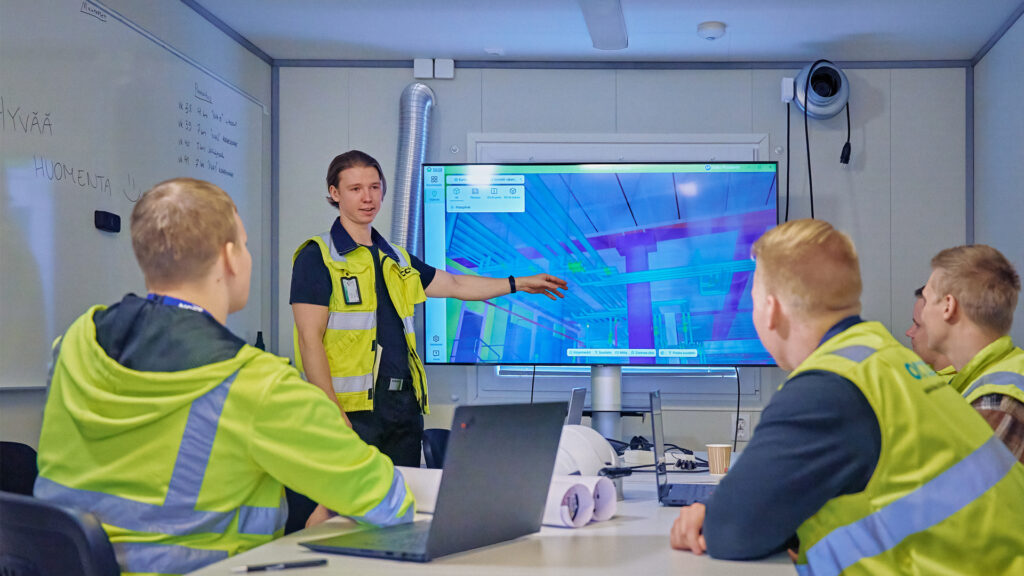In the coming years, the building will face a lot of changes, which will require new know-how to adapt to. The Construction Act, which will enter into force at the beginning of next year, sets new requirements for professionals in the field. For example, corresponding foremen or designers must have a certificate of their competence as required by law. The industry also has a need for expertise, especially with digitization and the green transition.

The recession is particularly deep in house construction. Without start-up projects, companies have no work to offer. Fortunately, compared to the previous downturn, saving measures have so far been implemented more through layoffs than layoffs.
With responsible companies is now the place for the screen: despite the challenges, they must be able to ensure that their own teams have the skills of the future and the necessary qualifications. After the economic cycle brightens, the companies that have been able to continue recruiting trainees, final employees and summer workers in difficult times are the ones that are strong. The role of the new generation of creators is emphasized as the pace of retirement continues.
Construction professional it is worth turning the quiet labor market to your advantage. In the previous boom period, workers were literally pulled from school to the construction sites. Now would be the right moment to finish the studies that were left in progress, which companies could also encourage and motivate their laid-off personnel to do.
To teach one's work is an old wisdom that has supported those who dropped out of their studies. However, to succeed in the field, you also need formal qualifications acquired through degrees. Studying is an investment in your skills and the best insurance in working life. Now, if ever, is the time to finish the unfinished degrees, grab further training and update your qualifications.
Competence has a strong connection with productivity. What happens if the people in the field stop developing their skills or – even worse – move to other fields? According to the forecast of the Skills Foresight Forum, 130–000 new jobs will open in the real estate and construction industry between 140 and 000, so there will be plenty of work in the future.
The bottlenecks in the industry are reflected in our country's ability to create growth and attract investments, as construction accounts for 60 percent of our country's investments and 15 percent of the gross domestic product. Of the employed, one in five earns a living from the KIRA sector. It is in the interest of society as a whole that the sector does not develop a quantitative or qualitative skill deficit. As interest rates fall and demand recovers, the industry must be able to rise quickly to support growth, because the competition for investments is fierce.
We challenge all industry companies, organizations, educational institutions, educational service providers and municipalities and cities to offer opportunities for theses, internships and summer jobs, as well as subsidized education. It is not only the interest of the entire industry but also of society, which requires everyone's contribution.
Timo Vikström, chairman of the board, Rakennusteollisuus RT
Tommi Luukkonen, chairman, Construction Engineers and Architects RIA
Annina Peisa, Chairman, RIL
Jukka Lintunen, chairman of the federal board, Construction Masters and Engineers AMK RKL
Asko Takala, chairman, Finnish Architects' Association SAFA
Jorma Malinen, chairman, Trade Union Pro
The article has been published in Rakennuslehti's Näkökulma column on March 1.3.2024, XNUMX
Write a comment